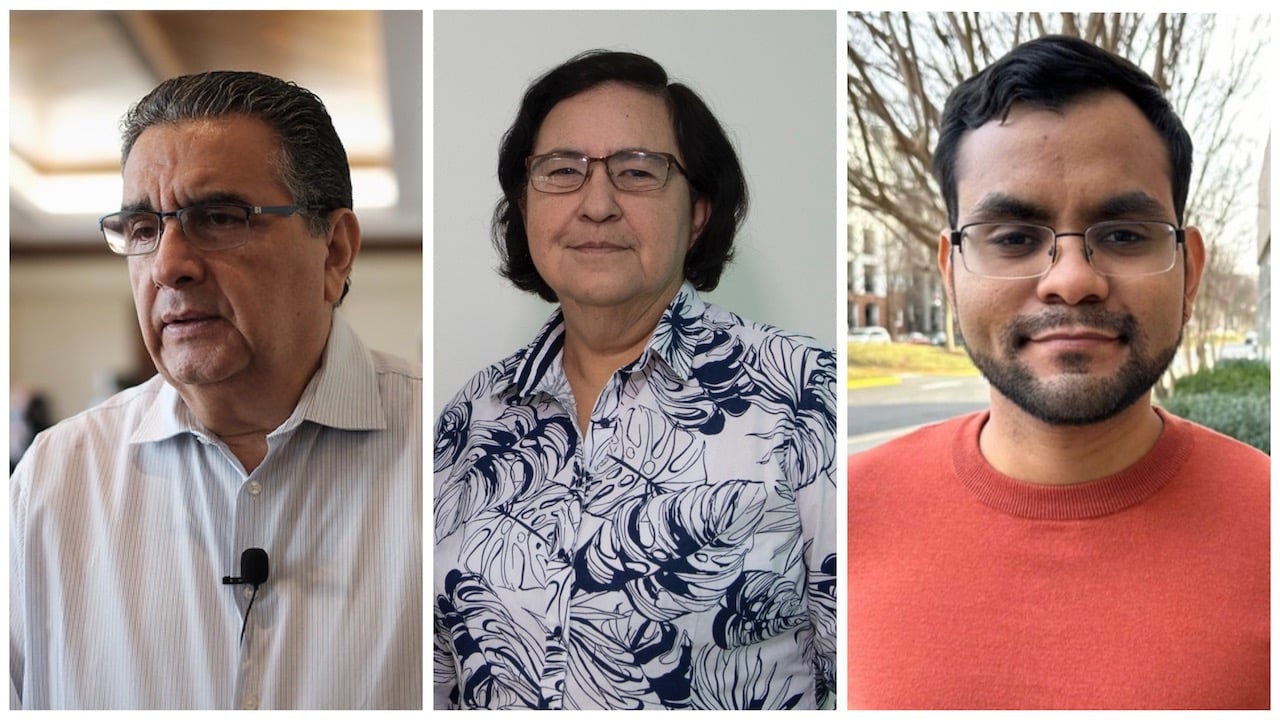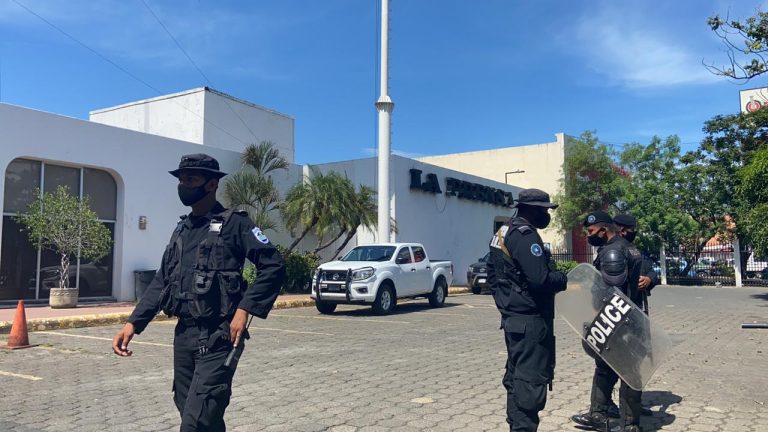7 de abril 2022

Dialogue and Elections: “The Peaceful Way Out of the Dictatorship”

PUBLICIDAD 1M
PUBLICIDAD 4D
PUBLICIDAD 5D
We demand the annulment of the bogus trials and freedom for Juan Lorenzo Holmann and for all the political prisoners

Periodista Eduardo Enríquez denuncia la persecución del régimen Ortega-Murillo contra los trabajadores del diario La Prensa
On Thursday, March 31st, Ortega loyalist Nadia Tardencilla, presiding judge of Managua’s Second District Criminal Court, sentenced political prisoner Juan Lorenzo Holmann to nine years in prison. Holmann, general manager of La Prensa, Nicaragua’s longest-running newspaper, was accused of the fabricated crime of money and asset laundering. As part of his sentence, he was barred from his profession for nine years, and given a burdensome fine of 3.2 million dollars.
Holmann's defense team highlighted a string of unlawful and arbitrary acts committed during the trial, which was illegally held at the jail site. Their objections were ignored by the judge, as was the fact that the Prosecution and their “witnesses” were unable to demonstrate that the supposed crime had been committed.
The judge ordered the indefinite continuation of the current police occupation of La Prensa’s buildings and property, amounting to the illegal confiscation of Nicaragua’s last surviving print newspaper. La Prensa was illegally seized by the police on August 13, 2021, and has remained occupied ever since.
With this sentence, that clearly emanated from the presidential residence in El Carmen, Daniel Ortega’s dictatorship is violating its own Constitution twice. First, Article 37 of the Nicaraguan Constitution establishes: “the punishment should not extend beyond the guilty individual.” Nevertheless, in addition to fabricating an unjust guilty verdict against Juan Lorenzo Holmann for a non-existent crime, the regime plans to continue occupying the installations of La Prensa with no legal justification. Not only that, the occupation has extended to all the newspaper’s offices, their newsroom, their presses, and their commercial printing facilities.
Secondly, Article 44 of the Constitution explicitly affirms: “The confiscation of assets is prohibited.” Yet, maintaining the police occupation of La Prensa, which has already gone on for seven months and 20 days, amounts to the illegal confiscation of the country’s principal media outlet.
Last year, the regime illegally confiscated Confidencial for a second time – this time seizing and occupying a temporary office we had set up. They stole all our equipment, and then - in the trial against the Violeta Barrios de Chamorro Foundation - they exhibited it as impounded from the foundation. The government also consummated the theft of the property and facilities formerly belonging to the television cable channel 100% Noticias. Now they’re in the process of illegally confiscating the facilities of the La Prensa newspaper which recently marked 96 years in service of truth and justice.
Despite these actions, they’ve never been able to confiscate journalism or the ideals of freedom, democracy, and accountability for those in power. From the jails, from inside the country, and from exile, Nicaraguans continue resisting in the name of these ideals.
My cousin Juan Lorenzo Holmann is the fourth member of my family to be imprisoned and declared guilty by Daniel Ortega and Rosario Murillo, in a cowardly act of political vengeance. These actions represent their attempt to squash the right to free elections, following the carnage of April 2018. On March 3rd, they sentenced my cousin Juan Sebastian Chamorro, who had aspired to the presidency, as a member of the Civic Alliance for Justice and Democracy, to thirteen years in jail for the bogus crimes of “conspiracy” and “undermining the national integrity”.
Three weeks later, my brother, Pedro Joaquin Chamorro, a founder of the Citizens for Liberty Party, was sentenced to nine years in prison; and my sister Cristiana Chamorro, former presidential aspirant, to nine years. Both of them were former board members of the Violeta Barrios de Chamorro Foundation; both were accused and tried for the fictitious crimes of abusive management and money laundering. In connection with this same process, an accusation and arrest warrant were also filed against me, with the intention to silence me for the “crime” of being a journalist.
Like the more than 170 other political prisoners, Juan Lorenzo, Juan Sebastian Chamorro, Cristiana, and Pedro Joaquin proclaimed their innocence from the jailhouse and before their tormentors. In addition, they invoked the example, the values, and the legacy of my father, journalist Pedro Joaquin Chamorro, the Martyr of Public Freedoms who was assassinated by a different dictatorship in 1978.
That legacy of democratic reform with social justice, and of fighting corruption and infinite reelection, today belongs to the country’s great blue and white opposition majority. With it, Nicaragua will bury the Ortega-Murillo dictatorship and return once again to being a republic. Ortega has failed roundly in his attempt to erase the political prisoners from our national memory. Today, they represent Nicaragua’s dignity and hope for change. And the first step is to redouble national and international pressure until the fake trials are annulled, and all the political prisoners are freed.
The United Nation’s decision to create an international group of independent experts to investigate the assassinations, arbitrary political detentions, torture, and massive displacement of Nicaraguan exiles, sets out a road map to reach the port of justice. However, Nicaraguans must first conquer their freedom by liberating the political prisoners, who represent the hope of democratic change.
This article was originally published in Spanish in Confidencial, and was translated by our staff.
Archivado como:
PUBLICIDAD 3M
Periodista nicaragüense, exiliado en Costa Rica. Fundador y director de Confidencial y Esta Semana. Miembro del Consejo Rector de la Fundación Gabo. Ha sido Knight Fellow en la Universidad de Stanford (1997-1998) y profesor visitante en la Maestría de Periodismo de la Universidad de Berkeley, California (1998-1999). En mayo 2009, obtuvo el Premio a la Libertad de Expresión en Iberoamérica, de Casa América Cataluña (España). En octubre de 2010 recibió el Premio Maria Moors Cabot de la Escuela de Periodismo de la Universidad de Columbia en Nueva York. En 2021 obtuvo el Premio Ortega y Gasset por su trayectoria periodística.
PUBLICIDAD 3D